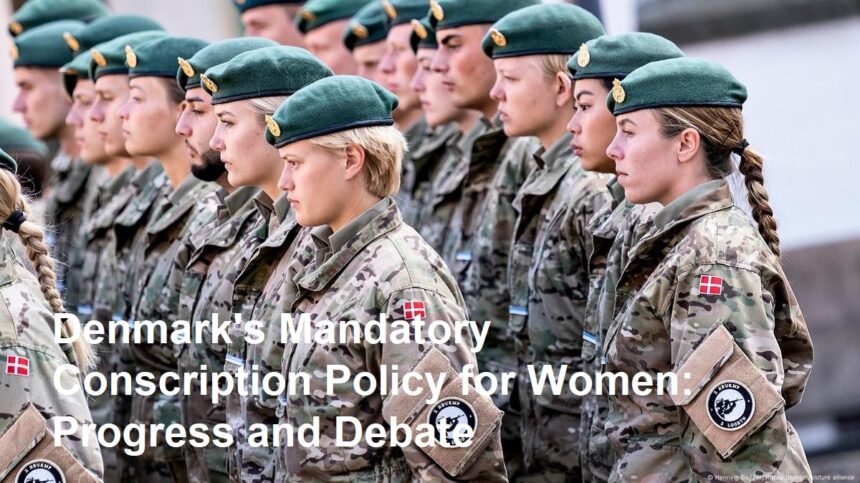Introduction
In 2024, Denmark made international headlines by announcing a significant policy shift: women will now be required to participate in mandatory military conscription, mirroring obligations long held by their male counterparts. This groundbreaking move, enacted by the Danish government, is set to redefine perceptions of national service, gender equality, and civic responsibility not just within Denmark, but across Europe.
Background of Conscription in Denmark
For decades, Denmark has implemented a system of compulsory military service for men, generally lasting between four and twelve months. Traditionally, women could volunteer for military service, but their participation was not obligatory. However, in recent years, ongoing discussions about equality and demographic changes—such as an aging population and the need for a robust defense—have driven the Danish government to rethink its approach.
Equal Rights, Equal Duties?
Danish officials have framed the new conscription policy as a natural step in the evolution of gender equality. Proponents argue that if women enjoy the same rights as men in other spheres—such as voting, education, and employment—they should also share the same civic duties, including military service. Danish Prime Minister Mette Frederiksen stated that this measure will “strengthen our national security and foster a sense of shared responsibility among all citizens, regardless of gender.”
Implementation and Public Reaction
The updated conscription system is designed to be inclusive. Beginning in 2026, all young Danes, regardless of gender, will be required to register for potential service upon turning 18. Selection will operate via a lottery system to determine who actually serves, since not every registered individual will be called up. Those selected will undergo basic military training and participate in various assignments, just as men have done for generations.
Reactions in Denmark have been mixed but mostly supportive. Many citizens view this mandate as a positive development for gender parity within the military and society as a whole. Some young women have expressed pride in being included, noting the opportunity to serve their country and gain life skills. Others, however, voice apprehension about military life or the principle of compulsory service for anyone—male or female.
Critics of the policy argue that the state should not compel its citizens to serve, regardless of gender. Others worry about the practical implications: housing, training, and managing greater numbers of conscripts, as well as ensuring the military environment remains free of gender-based discrimination and harassment.
Broader European Context
Denmark joins a small group of countries—including Norway and Sweden—that have moved toward gender-neutral conscription in recent years. Each of these nations has cited similar motivations: promoting equality, bolstering defense, and meeting the challenges posed by shifting demographics. The Danish model is being closely observed by other European countries as a test case for modern conscription policies in the 21st century.
Potential Impacts and Future Developments
Experts predict that Denmark’s decision could reshape societal attitudes toward military service. As more women participate, their presence may transform the military workplace—potentially reducing old stereotypes and fostering new leadership structures. Additionally, these changes could influence civic engagement among young people, strengthening democratic values and a sense of unity.
However, there will also be practical challenges to overcome, including adapting facilities and addressing any cultural resistance within the armed forces. Policymakers stress that comprehensive education, training, and support will be essential for a smooth transition. Ongoing surveys and policy reviews are planned to identify issues early and respond accordingly.
Conclusion
Denmark’s move to require military conscription for women marks a milestone in the journey toward true equality. While challenges remain, the policy aims to unify the nation around shared responsibilities and opportunities. It reflects a broader European trend and may inspire further debate and reform as societies rethink the meaning of service, citizenship, and gender roles in a changing world.












